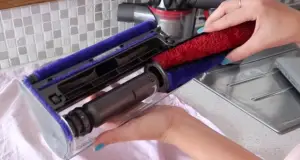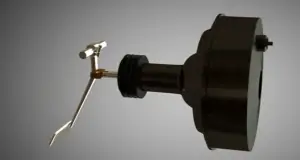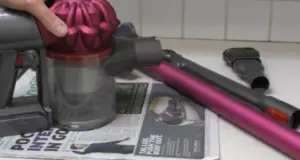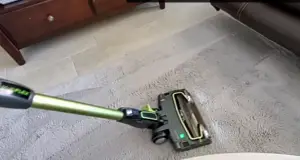More About Food Last When Vacuum Sealed
Vacuum sealing prevents and keeps food for a prolonged duration, keeping it fresh and safe to eat. This is due to the fact that vacuum sealing serves several key purposes in avoiding food spoilage:
Prevents Oxidation
While breathing in oxygen is necessary for life and health, excessive exposure to oxygen can cause food to deteriorate. When fats in meats, vegetables, and dairy products are exposed to air, carbon compounds develop that produce intense, unpleasant smells.
Whether it’s the browning of an avocado or the rancidity of oil, the air is responsible for these disagreeable smells and tastes. Vacuum sealing eliminates all air from food packing and seals it tight, avoiding oxidation.
Prevents Contamination
Microorganisms that may grow on the surface of foods, such as bacteria, fungus, and yeasts, require oxygen to breathe and thrive.
Vacuum sealing not only keeps other foods from contaminating your meal but also produces an airless environment in which these creatures cannot survive.
Inhibits Enzymes
In the universe of preservatives, one bad apple often ruins the bunch. Natural enzymes in fruits and vegetables interact with air, causing food spoilage.
Vacuum sealing slows the enzyme process in the afflicted food while also preventing it from hastening the deterioration of other fruits and vegetables kept nearby.
Prevents “Freezer Burn”
Freezer burn is produced by oxidation and dehydration, which occurs when the water in a freezer evaporates without liquifying, sucking moisture out of foods and releasing it as vapor.
Foods darken or turn grey due to oxidation, whereas moisture evaporation gives a rough, leathery look. Natural moisture within the food is trapped and prevented from evaporating by vacuum sealing.
Vacuum sealing extends the life of foods for all of these reasons. Even the finest vacuum sealer, however, cannot keep foods fresh permanently.
How Long Do Vacuum-Sealed Foods Last
-
Dry foods
When pantry staples like flour, cereal, pasta, and other dry food items are vacuum-sealed, they last 2-4 times as long as when they are stored normally. Without vacuum sealing, pantry goods such as flour, sugar, rice, and pasta can survive up to 6 months in the pantry. They can survive up to two years if vacuum sealed.
-
Frozen foods
When packaged traditionally, frozen meats, poultry, and fish can be stored in the freezer for up to six months.
Frozen meats may be kept fresh and free of freezer burn for up to 3 years when vacuum sealed. Vegetables also keep well in the freezer and maybe vacuum-packed for months.
-
Raw foods
When it comes to raw foods kept in the refrigerator, a vacuum sealer keeps them fresher for longer. Cheese can deteriorate in as little as 1 to 2 weeks, but when vacuum packed, it can survive for 4 to 8 months.
Fruits and berries in the fridge last less than a week, but with vacuum sealing, you can increase their shelf life, preserving them fresh for up to two weeks.
-
Cooked foods
Vacuum sealing can also make your meal-prepping foods and leftovers stay fresh for longer. Most cooked foods will only stay fresh in the refrigerator for 1-3 days. When vacuum sealed, cooked foods can last in the fridge for up to 2 weeks.
Tips for Using a Vacuum Sealer to Preserve Food
Remember that just using a vacuum sealer does not remove all danger of food deterioration and contamination, and that vacuum sealing should never be used in lieu of refrigeration or freezing to extend the freshness of food.
The combination of storage temperature and vacuum sealing keeps your food fresh and secure. Here are some things to consider while preserving food.
Not all microorganisms require oxygen.
- botulinum, on the other hand, is a hazardous food-borne bacterium that causes botulism and does not require air to thrive.
In fact, because there is no contest from other air-loving bacteria, improper vacuum sealing may actively promote the growth of botulism.
Statistics On Food Preservation Rely On Optimal Use
While a vacuum sealer may extend the life of your food by 3-4 times over normal storage, these numbers are based on flawless use and perfect sealing.
Some vacuum sealing devices leave air in the bag or have a poor seal. It is also possible to introduce pollutants into your food when cooking or preparing it, which will compromise its safety.
Conclusion
Bring a big saucepan of water to a fast boil to blanch the veggies. Wait for the water to return to a boil before adding your veggies. Most veggies should be cooked for 3-7 minutes after the water is boiling (see this chart for specific times).
When the timer goes off, immediately drain and immerse your veggies in cold water to stop the cooking process. They are absolutely ready to be vacuum-packed and frozen after they have cooled.
Vacuum sealing can keep nearly any food fresher for 2-5 times longer than other packing methods. It’s an excellent method to keep your meals fresh and nutritious while also saving you money each month.




